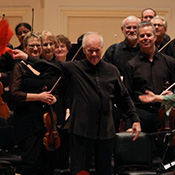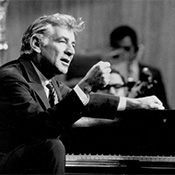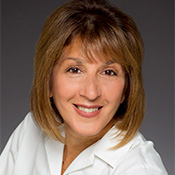
Doug Hagerman named Chair of the League of American Orchestras
David Lewellen
PUBLISHED
Tagged Under: Board of Directors, In the News
Doug Hagerman’s experience leading the Milwaukee Symphony’s board of directors may serve him well in a new and larger role.
Hagerman, who stepped down as the MSO’s board chair in 2014, was recently named to take the same role for the League of American Orchestras, the national membership association that offers research, training and advocacy to orchestras of all sizes.
“It’s a brilliant move on the part of the LAO,” said MSO Executive Director Mark Niehaus. “Doug Hagerman loves music as much as or more than anyone I know. That cannot be undervalued.”
“I can endlessly geek out about composers and performers,” Hagerman said. “In any given day, I listen across multiple centuries.” He credits Mozart and Beethoven with being his entry point, but he loves contemporary choral composers such as Arvo Pärt and John Tavener, “and this morning, I was listening to lute music from the 16th century.”
Hagerman became MSO chair in 2011, and one of his first risks was to promote Niehaus from the ranks of the orchestra to become executive director. “It was definitely the highlight of my tenure as the board chair,” Hagerman said. “Mark is doing a fantastic job.”
Although Hagerman stepped down as chair at the end of 2014, he still serves on the MSO board, leading the search for a new music director and working on the campaign to increase the endowment and obtain funds to restore the Warner Grand Theater as a future concert hall.
For the League of American Orchestras, executive director Jesse Rosen said Hagerman has made “a wonderful impression as a board member. He’s truthful, even-handed, smart, and passionate about music beyond belief. Everyone likes him.”
The LAO has about 700 member groups, ranging from the biggest ensembles with international tours and recording contracts down to all-volunteer community groups, as well as youth orchestras – and balancing their interests is a challenge, Rosen said. But the league acts as a voice for classical music at the federal level, and offers professional development to its members to help adapt to a rapidly changing landscape.
With intense competition for entertainment dollars and time, the LAO has plenty of work to do. “There’s nothing wrong with the music,” Rosen said, but the concert experience can be “ritualized and stagnant.” So orchestras across the country are experimenting with presentation, trying new venues, multi-media presentations, and developing community partnerships.
Leading the Milwaukee Symphony through its financial crisis of 2013-14 “was really difficult and really scary,” Hagerman said, “but with the benefit of hindsight, it helped us in some ways.” The orchestra was forced to make its case to the community for why it deserved to be saved, “and we couldn’t just say, ‘But we play Brahms so well!’” he said. “We had to state our value in terms of community service, fostering creativity and innovation, music education, attracting people to the city.”
But, he said, “An organization as lean as the MSO can’t cut its way to success. We had to find ways to be more valuable that don’t cost a lot of money.” With few ways to expand the revenue stream at the moment, “we have to think about where we play and what we play, and expand the circle of people who value the MSO. We have to be constantly outward-looking. We have to open our doors to the community and say, “Hey, you’re welcome here.’”
All of those experiences will carry over very well to his LAO work. The Milwaukee Symphony, Hagerman said, is a musically outstanding group that “is struggling to expand its community reach in a revenue-constrained model. And that is probably true of 90 percent of the orchestras out there now.”



